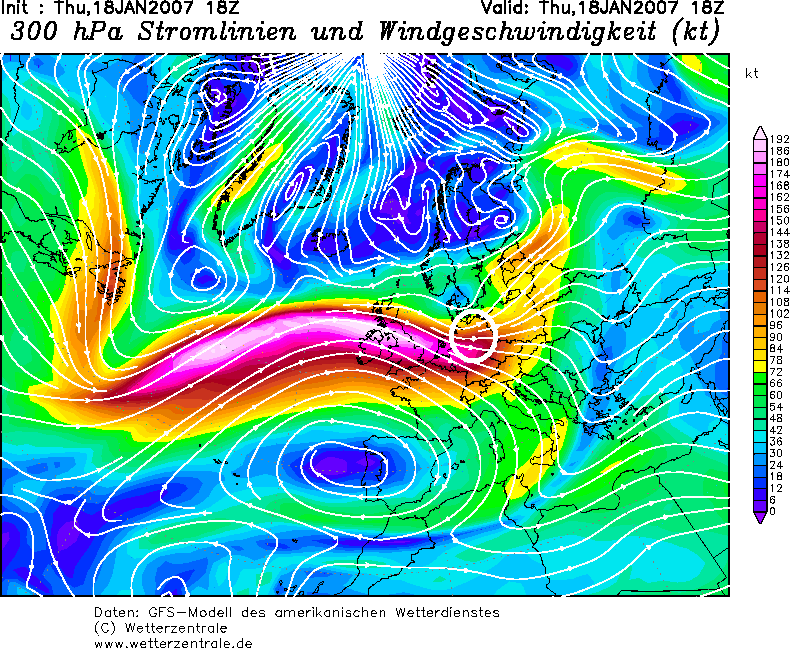Project summary
| Duration: | September 2010 - 31 August
2012. |
|
Project presentation: |
given at the Complexity-NET outreach workshop, Brussels, 9-10
November 2010. |
| Funding body: | the
Complexity-NET
European network. |
| Partners: |
|
This interdisciplinary project will deliver and apply new methods for
quantifying the predictability of extreme events in complex dynamical
systems.
Specifically, PREDEX adopts an interdisciplinary combination of ideas
from dynamical systems, statistics, meteorology and atmospheric
physics to address the following questions:
-
What are the deterministic time limits of predictability for
extreme weather events?
-
How can we use emergent dynamical patterns to enhance
predictability of extreme weather events?
-
What is the role of spatial scale interactions in the physical
processes leading to extreme weather?
PREDEX involves collaboration with three European weather forecasting
operational services:
Postdoc positions
PREDEX has been awarded funding for three postdoctoral positions.
-
The postdoc position in Exeter is for 21 months and will be
supervised by
Dr Renato Vitolo
Prof David Stephenson,
Dr Chris Ferro
and
Dr Renato Vitolo. The
research will focus on extremes in models of intermediate
dimensionality (hundreds of degrees of freedom) for the midlatitude
atmospheric circulation. Suitable candidates have a PhD or equivalent
research experience in applied mathematics, statistics and/or
atmospheric physics.
See
the official advert for more details.
Deadline for applications:
3 September 2010.
-
The postdoc position in Groningen is for 2 years and will be
supervised by
Prof Henk Broer,
Dr Mark Holland
and
Dr Renato Vitolo. The
research will focus on extremes in low-dimensional dynamical systems.
Suitable candidates have a PhD or equivalent research experience in
dynamical systems, ergodic theory and/or probability.
See
the official advert for more details.
-
The postdoc position in Dublin is for 2 years and will be
supervised by
Dr Rodrigo Caballero
and
Prof Peter Lynch. The
research will focus on extremes in numerical weather prediction
models. Suitable candidates have a PhD or equivalent research
experience in meteorology and/or atmospheric physics.
The official job advert will be issued soon.
Potentially interested candidates are warmly encouraged to contact the
principal investigator
Dr Renato Vitolo at:
r.vitolo(at)ex.ac.uk
The research teams
Dr Renato Vitolo
(principal investigator of PREDEX) is the Willis Research Fellow (see
the Willis Research
Network) based at the University of Exeter, where he will become
lecturer in the mathematical modelling of the climate system in July
2012. He has multidisciplinary interests, ranging from the
quantification of correlated and clustered weather hazards
(windstorms, hurricanes, floods) to the application of dynamical
systems theory to atmospheric phenomena (low-frequency variability).
Professor David
Stephenson is the Joint Met Office Chair in the Statistical
Analysis of Weather and Climate and the director of the
Exeter Climate Systems
research centre based within the mathematics research institute. His
research aims to develop advanced statistical methods for climate
analysis and to improve the quality of weather and climate
forecasts. He is a highly cited author and has published 100 papers in
high-quality, refereed journals, and a book on forecast verification.
He currently serves as Editor for the Journal of Climate and is an
invited member of various World Meteorological Office expert
committees.
Dr Mark
Holland is lecturer in applied mathematics. His main interest is
at the interface of dynamical systems and statistics, namely the
statistical properties of non-uniformly hyperbolic strange attractors
and intermittent systems and the study of probabilistic limit
theorems. He has pioneered the study of extreme value theory for
non-uniformly hyperbolic dynamical systems.
Dr Chris Ferro
is lecturer in statistical science, with expertise in extreme value
statistics and interests in developing statistical methods for climate
sciences; describing and understanding the changing risks of extreme
weather events; improving probabilistic weather forecasts; quantifying
and understanding forecast quality.
Professor Hendrik
W. Broer is member of the KNAW (Royal Dutch Academy of Sciences),
Scientific Director of the
Johann Bernoulli Institute
for Mathematics and Computing Science of the University of
Groningen and managing director of the mathematics cluster
Nonlinear Dynamics of Natural
Systems, funded by the Netherlands Organisation for Scientific
Research. He is an internationally renowned expert in Nonlinear
Dynamics and Bifurcation Theory, with nearly 70 papers in
international journals and 20 books and book chapters as author or
editor.
Dr Rodrigo Caballero is
Lecturer in Climate Dynamics, with expertise in theoretical and
numerical modelling the atmosphere at all levels of complexity. He is
a participant in EC-Earth, a European consortium for the development
of a comprehensive Earth system model. He is principal investigator in
a project that will provide a large database of detailed atmospheric
simulations for the study of dynamical processes leading to extreme
weather events (mainly windstorms).
Professor Peter Lynch is
the Met Éireann Professor of Meteorology at UCD. He has over thirty
years experience in Numerical Weather Prediction, and has developed a
number of techniques that are now in widespread international use in
operational NWP. He leads a team running regional climate models to
simulate future climate conditions in Ireland. He has been Project
Leader of the international HIRLAM
project and a Chairman of the Scientific Advisory Committee of the
European Centre for Medium-Range Weather Forecasts.
Last modified 2010-07-14




 research centre,
research centre,
 group,
group,
 ,
,